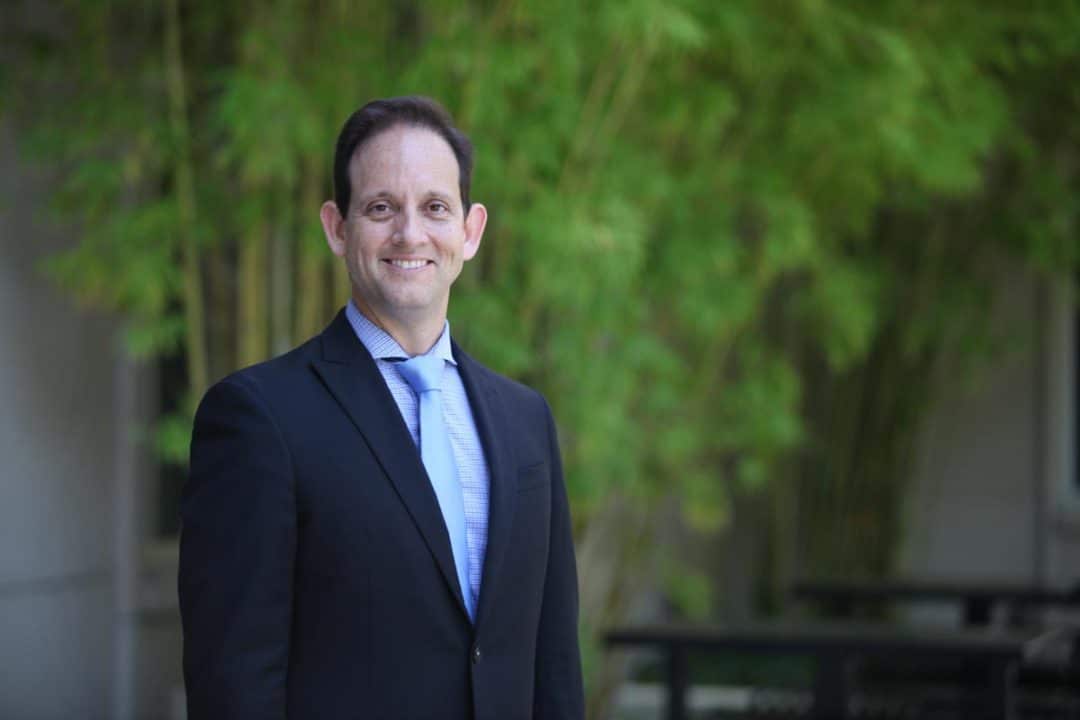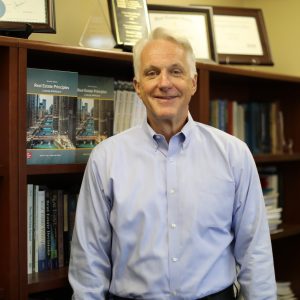New Challenge Awaits Incoming Heavener Director
After a successful 12-year tenure as Assistant Dean and Director of UF MBA—guiding the program to extraordinary heights—Dr. Alex Sevilla is ready for a new challenge.
Dr. Sevilla has been named Associate Dean and Director of the Heavener School of Business, the College’s undergraduate school. He takes over for Dr. Brian Ray, who led the Heavener School for 17 exceptional years.
Learn why Dr. Sevilla took on this new challenge, the Heavener School’s emphasis on career readiness, and what he envisions in the Heavener School’s future.
Tell us why you accepted this position.
I loved the role I had with the MBA program. Our team was able to do some pretty special things together. But having the opportunity to shift gears in a profound way, was a great opportunity.
I’ve taught a leadership course in the Heavener School since 2013, and I’ve loved being in the classroom with our Heavener students. I’ve been impressed with their appetite for learning, their enthusiastic mindset, and their strong desire to see connection points between class concepts and career application. Having the opportunity to work day-to-day with such incredible students, at such a key developmental time in their lives, is exhilarating to me.
What’s on your “To Do” list?
For me, the student experience is paramount. We’re here to change lives. I’m trying to understand from our team’s perspective what makes Heavener students tick, and how can we help them? What’s working well, and what can we re-imagine or create that can advance our mission further?
Then, as we pivot toward the fall, I’ll do as much interacting as I can with the students. I need to understand how they see Heavener. It’s one thing for me as the Associate Dean to have an idea of what I think is necessary, but that needs to be grounded with a deep appreciation for what our students see, feel and experience.
Career readiness is a priority at the College. How does the Heavener School fit into this new initiative?
I believe not all jobs are created equal. Sometimes we use a lens when students graduate and say, “Do they have a job or do they not have a job?” I believe that’s flawed thinking. I think there’s a huge difference between having a job and earning the job, the type of job where a graduate flies off the commencement stage, eager to start their career.
This idea is at the heart of what we’re trying to do. How can we inspire as many Heavener students as possible to think about career early on, understand the connection points between their academic experience, leadership development experiences, global experiences, internships and so many other unbelievable opportunities that students here at Heavener have, and how these connect to exceptional career opportunities?
How will your leadership style change, if at all?
I don’t anticipate my leadership style will change significantly. My focus will be to build an inclusive strategy with talented people that is laser-focused on a clear mission, delivering metric driven outcomes to all stakeholders, and maximizing the transformational opportunities for our students.
I am surrounded by a really talented team in Heavener. They share many elements of this leadership philosophy, particularly in delivering transformational experiences to our students. This makes collaboration, innovation, and strategic advancement not only possible, but fun. That’s the hallmark of a great team.
How will you gauge success?
There will be specific metrics of course that will be established to define success. But, at the end of the day, how well we prepare students for early career success must be defined. We will also measure success based upon how the reputation of the Heavener School advances, particularly in the eyes of corporate recruiters that seek to hire the best talent in the world.
Having said this, it is equally important that we measure success based upon how we have developed our students during their time here, personally and professionally. Have we enabled them to see the world differently? Have we pushed them outside of their comfort zone to broaden their capabilities? Have we inspired them to see themselves differently, to deepen their confidence, poise and belief in what they can accomplish in the future?




